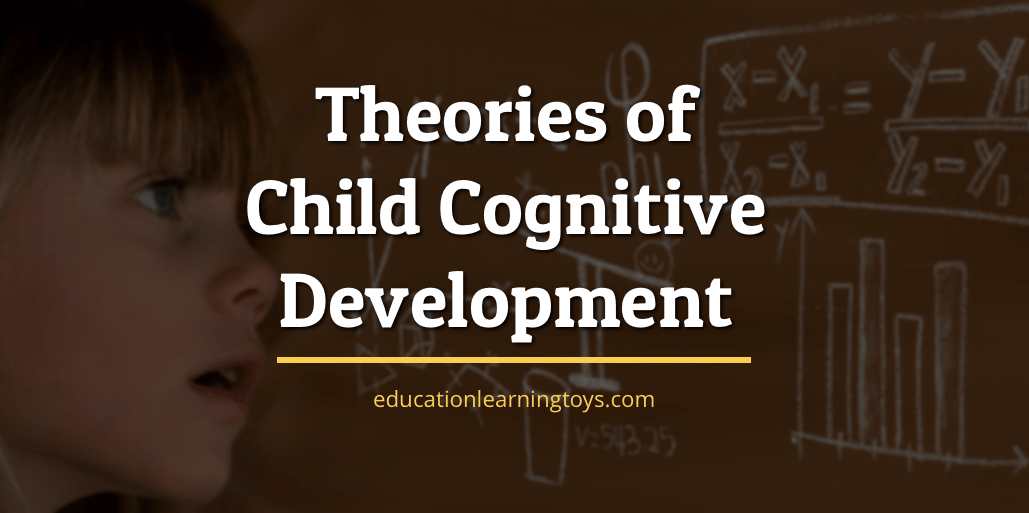There is something timelessly fascinating about the way that children grow and develop. In the early years of a child’s life, there are countless milestones and marks that are met on a daily basis.
Since this is such an interesting topic, there are many theories that have emerged over the years from child psychologists and thinkers about what type of development is taking place at a certain stage. These theories differ greatly, but they relate back to social, emotional, and cognitive growth to get a holistic view at development.
This article will take a closer look at some child development theories. When educating or raising children, we often wonder why they behave in certain ways. A teacher or a parent will often ask why a child is doing or saying a particular thing. Cognitive development theory can help answer some of these questions about child behavior.

Brief history of child development cognitive theories
Over the years, our understanding of brain development and progress has changed and evolved. For a long period of time, the development that takes from birth to adulthood (between 14-18 years old depending on the time in history) was largely ignored. It wasn’t until the 20th century that psychologists starting taking more interest in cognitive abilities, language usages, and growth in children.
As childhood has become more of a determined phase of life, there is more focus on early childhood as well. While babies don’t seem to be doing an awful lot or contributing massively to society, there are immense growth efforts taking place. These growths are physical as well as social, emotional, and intellectual.
Once psychologists started paying more attention to the child’s brain as it develops, many cognitive theories started coming into play. These relate to social skills, behavioural aspects, and the way the environment shapes a child’s development.
Who are some of the key child cognitive development theorists?
When studying education and early childhood learning, there are some key psychologists who will appear. These are the people who have been most influential in the field of study in the 20th century and beyond.
Here is a brief outline of some of the psychologists and what their theories relating to child cognitive development are.
- Sigmund Freud has a theory about psychosexual development that says childhood progress takes place in stage focused on erogenous zones in the body. He argues that it is the early years and points of pain or pleasure in these zones that determine how a child grows and develops in a physical and psychological sense. The theory says that a child’s personality is largely set by the time they are 5 years old.
- Erik Erikson believed in his theory that social interaction, conflicts, and change in a child’s life are the most influential determinants of development. He had an 8-stage theory of human growth that focused on understanding how development conflicts impact on later functioning and social growth.
- Jean Piaget has one of the most well known theories of cognitive development. His theory explains the development process of mental states and stages of thinking. He focused largely on how children process each interaction with the world and the environment around them. His argument was that these factors shaped development more than the natural state the brain is born in.
- John Bowlby developed the well recognised attached theory. This theory says that children have an innate desire to form attachments from an early age. Children strive to stay close to their caregiver and it is this person who creates a safe haven for exploration, growth, and creativity.
- Lev Vygotsky is another well known psychologist who developed a theory of sociocultural seminal learning. He argued that children need to have their learning and cognitive development guided by a More Knowledgeable Other. It is the MKO who guides a child through their Zone of Proximal Development.
- Albert Bandura has a social learning theory which claims that behaviours can be learned through observation and modelling. This theory says that cognitive development and understanding takes place from verbal instruction and observing the actions of others.

Cognitive development and social interaction
While each of the theorists have their different stances and points, one thing that ties them together is the correlation between the brain developing based on social interactions it has. The environmental factors are prominent in each cognitive development theory.
Much of cognitive development theory for emerging learners comes back to the ‘nature vs nurture’ debate. That is to ponder, are children born with a brain structure that grows based on genetics, or is it something that is moulded over time by external influences. There probably won’t ever be a decisive answer to this, but it is important to acknowledge all aspects of the theories.
One of the most noticeable things that children do as they start processing the world is to ‘learn to think’. This is when they start interacting with new objects and things in the environment, making a mistake such as falling over, or associating a color with an object. These are natural cognitive developments that need to take place in order for a child to grow into being an adult.
Conclusion
Each theory of cognitive development touches upon an aspect of social and behavioural traits that are unavoidable with the human condition. Each theory unlocks another magical element of child behaviour, development, and interaction with the world.
There is something remarkable about watching a child learn something for the first time, process it, and understanding something new about their world. It isn’t hard to see why so many people love studying this part of development! Understanding how a child’s brain grows and develops can also help adult learners to be more reflective, think more critically, and understand their own thought processes on a deeper level.





